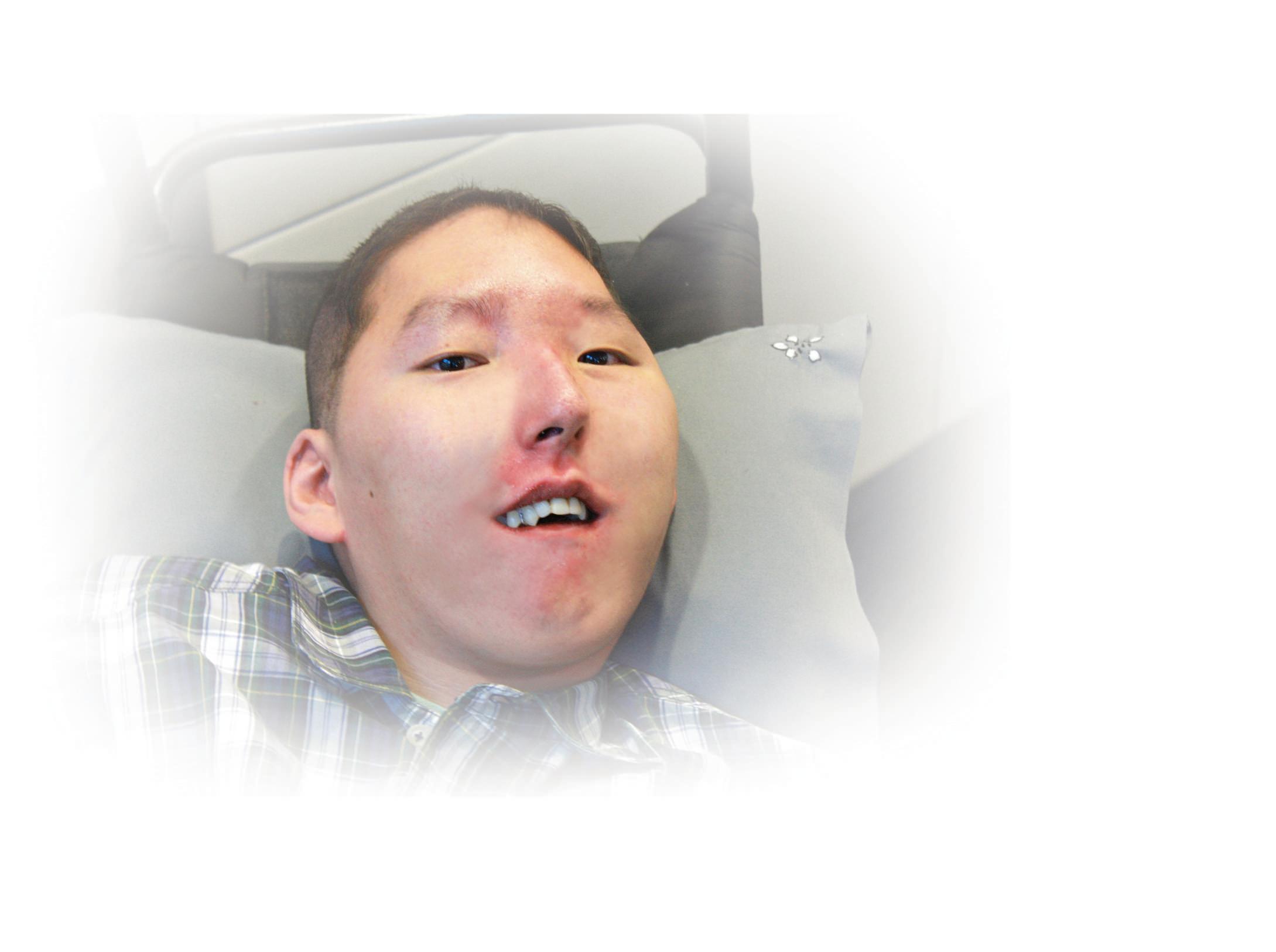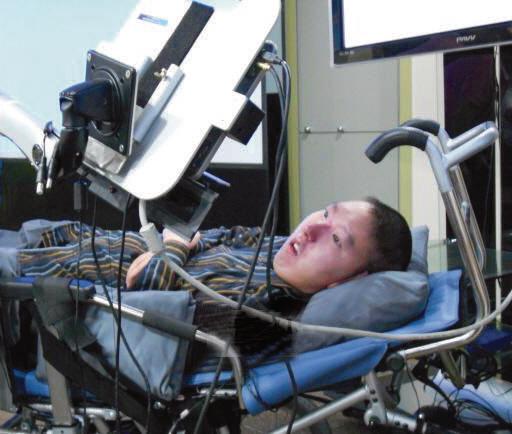Shin Hyung-jin, living a life of challenge

CALLED "YONSEI University's Professor Hawking," Shin Hyung-jin (Sr., Dept. of Computer Science) is going after his dream to become a computer programmer while fighting a life-threatening disease that he had since he was six months old. That disease is Spinal Muscular Atrophy (SMA), a cruel illness that slowly takes away Shin's muscle strength and constantly puts him under the fear of breathing problems. SMA, however, did not dampen Shin's burning enthusiasm for learning. Along with the help of his friends, family and IT devices, Shin has eagerly continued studying and pursued his dreams. After taking some years off due to hospitalization, he is now finally headed for graduation next February, nine years after Shin first entered Yonsei University in 2002. The Yonsei Annals interviewed this passionate engineering student, who is a shining example of overcoming what is perceived to be an insurmountable challenge.
Chapter one: going to school
When I first received my admission notification from elementary school, my parents and I hesitated. We were worried that my sickness would alienate me from my classmates and bar me from fully participating and adjusting to school life. It took us a lot of courage to make the decision for me to attend school. Fortunately, teachers and my classmates were considerate. The school made sure my classrooms were located on the first floor, and classmates took turns and volunteered to become my helper, flipping my textbook pages during lectures and photocopying their notes for me to study. I still keep a close relationship with friends from back then.
Most of all, though, it would be hard not to mention my mother. Every single day, she would take me to and from school, holding me in her arms; on rainy or snowy days when the road got slippery, she would be extra careful from fear that she might fall and hurt me. During exam periods she would stay beside me all night, turning over textbook pages for me so that I could study. I feel thankful, but also sorry, because she always willingly gives up her personal life for me. Repaying everything she has done for me would be impossible, but I will try to be a good son by staying healthy and leading an altruistic life, which is what she truly wishes for.
Looking back, I feel grateful that despite my health problems, I was able to go through elementary school, middle
school, high school, and enter university. Even with others' help and concern, my disease often made attending school itself a risky challenge. Once I had a near-death experience during class when I was suddenly unable to breathe. Nevertheless, I still wanted to go to school very badly; after being hospitalized for a year in elementary school, I had realized how much I liked going to school. School was not only a place for learning, but also a place where I could meet and talk with friends my age.
Chapter two: campus life
Studying in university was another challenge for me. Performing even the simplest things, such as taking down lecture notes, are tough, since I do not have enough strength in my muscles to move my fingers. Fortunately, volunteer workers take down lecture notes for all my classes thanks to the university's support system for the disabled. The notes are scanned and sent to my computer, which I can skim though by using an eye-controlled mouse. An eyecontrolled mouse enables people with physical disabilities to operate the computer with their eyes; by moving the pupils, or slowly blinking the eye, you can move the mouse curser and click the icons. Before discovering this mouse, I had my families and friends turn the pages of the book and type out my homework for me, which must have been very tiring for them. Even though using the mouse still takes longer and a lot more effort, it feels great to be able to finish my homework, surf the Internet, and play on-line games without the help of others. I still remember the thrilling sense of accomplishment I felt the first time I handed in a computer programming report that I had finished entirely on my own!
Apart from studying, I participated in a club called "Guernica." Made up of both the disabled and non-disabled, Guernica is a club that works to improve the environment for the disabled and protect their rights. Here, I became friends with many different people and shared a lot of memories. I especially remember the moment when we opened up an event where people could experience life as the handicapped for a day. With eyes covered, or on a wheelchair, all participants had to get to the Sangam World Cup Stadium by public transportation. It was then that I first got on a subway.
Ready to start a new chapter
My dream is to become a computer programmer. Ever since I was young, I have been particularly interested in computers. When I was in ninth grade, I got so absorbed in computer games that I thought of making them myself; I read computer programming books from cover to cover. This eventually led me to major in computer science. After graduation, I plan to study this field with more depth and hope to develop software programs that would make it easier for the disabled as well as nondisabled to use the computer. After experiencing devices like the eyecontrolled mouse and the virtual keyboard, I realized how such tools could profoundly affect people's lives.
I often hear people nicknaming me Professor Hawking. I feel a bit pressured to be compared with such a prominent figure, especially when I am a mere student who has nothing much in common with him besides the fact that we share a similar disease. I think many people call me like that in hopes that I will, like him, contribute largely to society and help out others. Keeping this in mind, I will try to live my life to the fullest.
Dear Yonseians
Studying hard and getting well prepared for employment is important as a university student. Yet, do not forget that enjoying the precious moments of campus life and discovering what you really want to do is also important. Get involved in various activities and make a lot of memories to cherish later on.
For me, every moment in life was a challenge. Due to my muscle disease, even the easiest and simplest things for others required me to muster up a lot of courage. However, if I had given up on such moments, I would not have been able to spend such a happy campus life here at Yonsei University. I hope that Yonseians do not give up no matter how difficult the circumstance may be; as they say, "Where there is a will, there is a way!"

